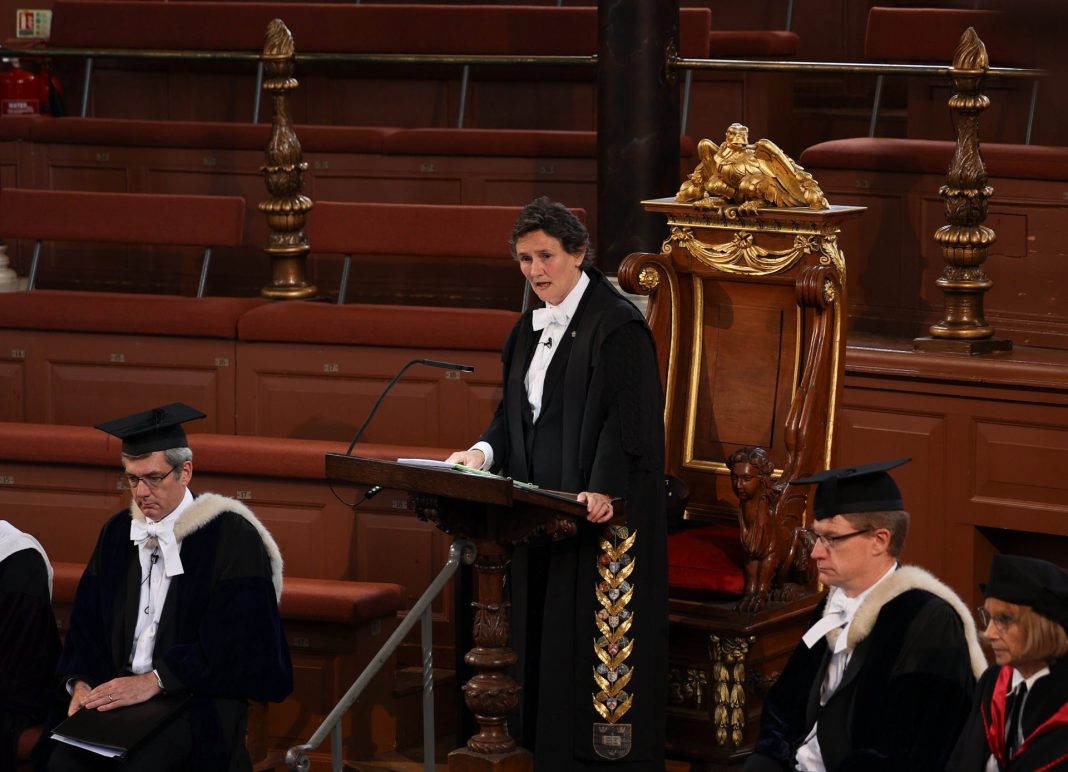Professor Irene Tracey delivered her annual oration as Vice-Chancellor last week, covering a range of topics including artificial intelligence (AI), freedom of speech, and the climate crisis.
The University has seen significant changes since the Vice-Chancellor’s last oration, including the election of Lord William Hague as the University’s 160th Chancellor. Reflecting on Hague’s election, Tracey described the Chancellor as “an absolute delight to work with.”
Shortly after the oration, the Times Higher Education’s global ranking placed Oxford first for a record-breaking tenth consecutive year. In anticipation of this year’s ranking, Tracey boasted of Oxford’s “enduring, endless excellence.”
In a speech strongly rooted in what it means to be human, the Vice-Chancellor outlined the University’s integral role in the lives of staff, students, and wider society. Reflecting on the date of the oration, Tracey said: “As we gather here on 7 October 2025, still in shock at what antisemitism and hatred wreaked in Manchester last Thursday, let us hope for more kindness.
“Let us hope for peace in Gaza and for the people of Palestine and let us hope for the safe return of all hostages.”
Examining the state of the world, the Vice-Chancellor described AI as the most pressing issue of our time. Acknowledging the “anxiety this new world brings,” she said that “people have to find an emotional connection.” She discussed Oxford’s role at the forefront of the AI revolution – championing initiatives such as the University’s AI in Education hub, and its role as the first UK university to offer ChatGPT-5 to all of its members.
Despite the challenges posed by AI, Tracey emphasised humanity’s compelling power with regards to innovation and creativity, encouraging the use of AI as a tool for distinctly human development.
The Vice-Chancellor also touched on the extensive equity, diversity and inclusion (EDI) debate taking place in America, saying that Oxford is committed to “finding the best talent, wherever we can, and then striving to ensure that talent thrives once here … This is where we stand, and it is where the middle ground of British public opinion stands too.”
Reflecting on changes to Statute XI, the University’s policy on disciplinary procedure, the Vice-Chancellor said: “Balancing the need to protect students from misconduct with the need to protect freedom of speech and the right to protest under new Office for Students obligations is not easy.”
In addition to weighing in on pressing social problems, the Vice-Chancellor praised Oxford’s world renowned research in both science and the humanities – which includes the development of TriOx, a novel blood test for cancer powered by machine learning research, as well as the work of the Evidence Centre for modern slavery and human rights.
Tracey was also keen to emphasise the University’s role in tackling climate change, including: developing clean hydrogen, improving water security across East Africa and South Asia, and hosting the Right Here, Right Now climate summit in partnership with the United Nations.
In an era of uncertainty and financial instability for the UK higher education sector, Tracey admitted that “Oxford is not cheap to run,” and emphasised the need to “build financial as well as physical and human capital resilience across the collegiate University”.
Concluding the annual oration, the Vice-Chancellor placed emphasis on hope, truth, and kindness which she said were key components of “the Oxford story”.


